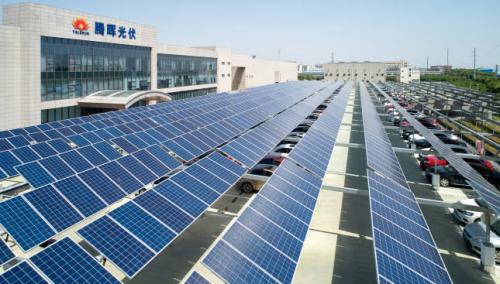The confined energy landscape
- Opinión

The energy outlook is complicated by the fall in demand during confinement, especially for fossil fuels; however, the importance of oil remains crucial. China is the central player for both the global oil industry following its economic recovery and the major player in terms of clean energy sources. What are the prospects for energy in general and fossil energy in particular?
Oil and natural gas have, in common, both significant importance for the tax revenues and foreign exchange earnings of their exporting countries, as well as a severe drop in their prices during the crisis brought about by the pandemic.
The pandemic crisis is dragging the low-profit oil industry into a possible series of bankruptcies. The IEA (International Energy Agency) estimated in July 2020 that total energy demand would decrease by 6% and oil demand by almost 8% in 2020.
Despite a moderate recovery in oil prices since June 2020, the oil market depends on a recovery in transport and petrol use worldwide. The picture is more uncertain given that since before the pandemic, oil demand grew by less than 1 per cent in 2019. Besides, the net profits of Saudi Aramco, the world's largest oil company, fell by 21 per cent in 2019, and in the second quarter of 2020, they fell by 73 per cent, compared to the same period a year earlier. Some experts, such as BP's CEO, do not rule out that oil demand may have already peaked.
In this context, the orientation of investments towards cleaner projects by some oil companies is moving, as they promote, little by little, the elimination of dirty energy sources; Saudi Aramco, BP, and Shell themselves stand out.
Within this context, the exit of Exxon Mobil, the most important oil company in the US, from the list of 30 companies in the Dow Jones Industrial Index (DJIA) stands out. In the statement of this decision Dow Jones mentioned that Exxon Mobil's exit occurred to reflect the US economy better. Raytheon (defence and aerospace) and Pfizer (pharmaceuticals) also left the index. Chevron is the last remaining company left of the seven sisters, as they were known before. Even though the outlook for clean energy is generally positive, investment in renewable energy may decline significantly by 2020, with the important exception of China. The IEA forecasts a 17% decrease in the deployment of solar photovoltaic energy and an 8% decrease in wind energy deployment this year. China is recovering fast, and wind and solar energy expect to grow 36% and 20% respectively in 2020.
Several economies, such as Colombia, Venezuela, Ecuador, and Bolivia, depend heavily on oil and gas exports. In contrast, Mexico and Brazil depend on tax revenues from Pemex and Petrobras's oil companies, respectively. The latter, faced with this situation, lose a large part of their fiscal income; and the former lose by currency, by volume due to the lack of demand and low prices, and depending on a constant need for imports by net importers.
The world energy scene depends mainly on China and its internal economic resilience, as a central axis for both fossil fuel demand and clean energy investment. China's oil demand expects to recover from its inner growth, which is particularly useful for Brazil, Saudi Arabia, Norway and Angola, so oil exports appear to be on the rise.
Paradoxically, China is the world's largest net importer of crude oil, despite efforts to limit its dependence and lower its consumption of fossil energy. Oil is also an essential input for countless industrial uses, in addition to power.
China is both the hub of the energy transition and the prominent investor in clean energy. China's recovery shows the fragility of oil, as it is the main demander of crude oil. Contradictorily, the dragging of China's economic growth means the world oil industry's main hope for recovery to some extent.
The panorama shows a dispute between dirty and clean energies in a situation of both energy change and crisis in energy demand. Both still coexist in this dispute and will be affected. Fossil energies, however, are being impacted more significantly. The situation caused by the pandemic could be an impulse to the transition towards cleaner energies under the leadership of China.
Num.23, Año 2020, September 7th
- Oscar Ugarteche, Senior Researcher "C", Instituto de Investigaciones Económicas, UNAM, Conacyt-SNI III, obela.org coordinator
- Arturo Martínez Paredes, Faculty of Economics, UNAM, member of the obela,org
Source: OBELA, Observatorio Económico Latinoamericano, IIEc-UNAM, www.obela.org
Del mismo autor
- El multilateralismo bipolar 08/03/2022
- Bipolar multilateralism 07/03/2022
- What does 2022 bring? Uncertainty 31/01/2022
- ¿Qué trae el 2022? Incertidumbre 31/01/2022
- The most expensive Christmas of the century... (so far) 20/01/2022
- La navidad más cara del siglo (hasta ahora) 20/01/2022
- Lo que pasó en el 2021 10/01/2022
- What happened in 2021 10/01/2022
- Estados Unidos: el elefante en la habitación 08/11/2021
- The elephant in the room 07/11/2021
Clasificado en
Clasificado en:
Pandemia
- Gabriela Ramírez Mendoza 07/02/2022
- Jyotsna Singh 06/02/2022
- Gabriela Ramírez Mendoza 06/02/2022
- Richa Chintan 10/01/2022
- Isaac Enríquez Pérez 03/01/2022








